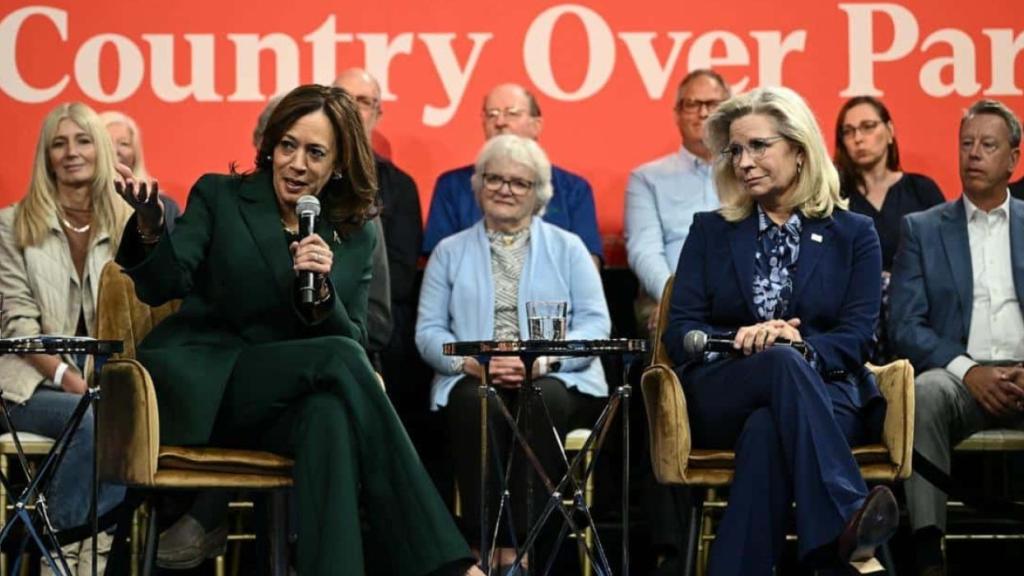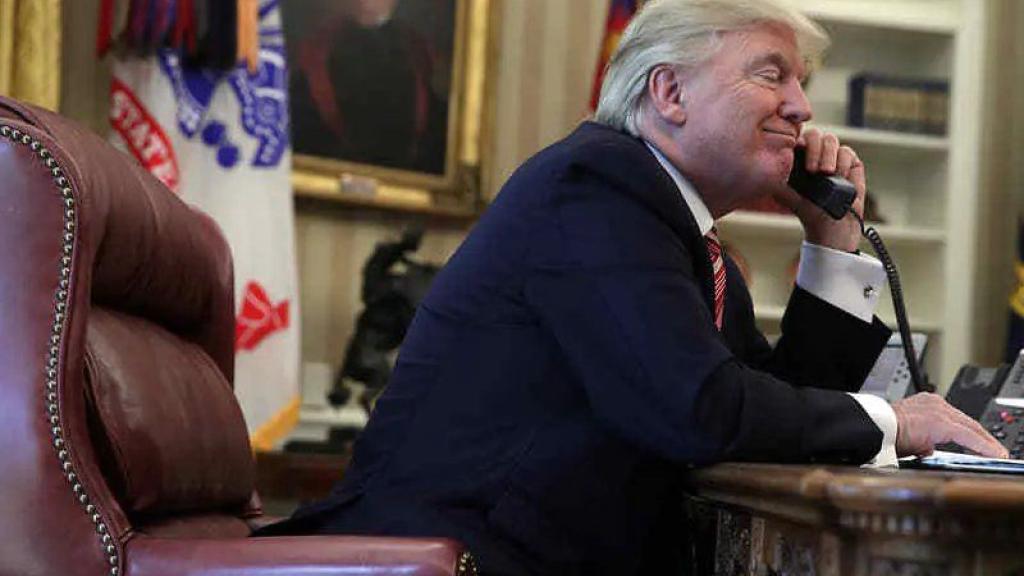Capitalist politics in crisis: Kamala Harris, Donald Trump, and the struggles ahead in the United States

First published at Spectre.
It’s a pathetic spectacle watching the Democrats form their circular firing squads blaming each other for their total defeat in last week’s elections. It is equally disturbing watching frantic and enraged middle-class liberals gather into virtual lynch mobs, seeking to blame and shame whichever marginalized group refused to sufficiently support Kamala Harris’s right-wing, blood soaked, imperialist presidential bid. The blame extends — whether it be a forlorn Joe Biden (criticized for not self-diagnosing his own deteriorated faculties early enough and bowing out of the race) or blaming a relatively small uptick in the number of “Latinos” (an incoherent category to begin with) who didn’t vote for Harris as key to delivering the presidency to Trump.
Another target for liberal derision has been Arab and Muslim voters. These groups, however small or insignificant in the number of actual votes cast, had the audacity to vote for antigenocide candidate Jill Stein. Alternatively, many refrained from voting within an imperialist electoral edifice whose two faces of death are systematically obliterating their families, friends, relatives, memories, and homelands in a macabre and endless orgy of US-backed Zionist annihilative violence.
Today’s stalwarts of the Democratic Party — primarily white middle-class liberals and centrists — are ready to punch down and blame everyone below themselves for the Democrats’ failures; never punching up or trying to actually analyze and understand why the Democrats can only operate within the constraints determined by the prerogatives and exigencies of US capitalism and imperialism.
It’s true that large numbers of people opted to vote for someone other than Kamala Harris and the imperial Democrats. More significantly, millions of people justifiably stayed home on polling day. According to the numbers, an estimated 14 million fewer people voted for Harris in 2024 than Biden in 2020 while Trump’s vote was slightly less than in 2020.1
To understand Harris’s resounding defeat by voter abstention, we need look no further than Harris and the Democrats themselves. The Democratic Party has moved so far to the political right in the last four years that it has become practically indistinguishable from Trump and the Republicans on main policy issues. By 2024, Kamala Harris was running as the more efficient of the right-wing options — mimicking, aligning, or adapting Trump and the Republicans’ hard right policy frameworks while promoting herself as more capable than Trump.
Unlike her fellow right-wing Democrat Joe Biden, who was compelled to make “progressive” campaign promises by the Black Lives Matter rebellions, the left populism of the Bernie Sanders Campaign, and the mass protests against both Trump’s violent separating, caging, and deporting of migrants and the debacle of his handling of the pandemic. For her part, Kamala Harris offered the working class and oppressed groups nothing.
Even less than nothing, “Kamala the cop,” ran a campaign farthest to the right in the modern history of the Democratic Party: promising to build the most “lethal” imperial military the world has ever seen to conduct the next generation of war, vowing enthusiastically to continue to arm and enable the Israeli genocide of Palestinians, shifting rightwards and obfuscating on protecting full abortion access and support for trans people, and promising to “close the border” and recriminalize migrants and refugees along the same lines as Trump.
As this is the essence of Harris’s politics, many would-be liberal, left, or progressive voter constituencies who remember her previous and current record on these issues, were never courted, nor offered reasons to believe her presidency had anything to offer people, and so never jumped on her bandwagon. In the 2020 primary elections, Harris’s policy proposals were so poorly received that her popularity languished in single digit territory for the campaign’s short-lived duration, and she was one of the first candidates to drop out for lack of support.2 Her rise to the presidential ticket in 2024 could only happen by top-down appointment, bypassing a primary process that she would have surely lost. On Palestine, she was heckled and protested by antigenocide protestors everywhere she went, while the polls showed most people supported a ceasefire and an arms embargo on Israel.3 Instead of “being pushed left” by popular sentiment, she instead pushed back and silenced, shamed, and insulted the pro-Palestine movement. With all eyes on her campaign, she demonstrated that the prowar and genocidal needs of US imperialism were far more important and necessary than basic human rights and democracy.
After suppressing the voices of the left, she turned right to build an electoral alliance for her campaign. She enlisted support from the top echelons of the non-Trumpian right wing of the Republican Party. She rolled out a “Republicans for Harris” campaign that included over two hundred top-ranking political figures including George H.W. Bush, George W. Bush, Dick Cheney, Mitt Romney, and a wide range of high-ranking officials, pundits, and funders.4 She courted antiabortion Republican women, who were “given permission” by Republican Liz Cheney to vote for Kamala, falsely believing that hedging her commitment to defend abortion rights provided enough ambiguity for right-wing middle class and bourgeois white women to flock to her campaign out of disgust with Trump.5 None of this worked. Instead, Harris’s message that she would rule from the right — essentially presenting a version of Trumpism without Trump — only enabled Trump to determine the political narratives heading into the election.
Like in 2016 and 2020, Trump ran his campaign on the issue of immigration, using the most violent and racist rhetoric to date. He promised that he would carry out the largest mass deportation in history and close the border to migrants and refugees. While her semantics were different from Trump’s, her policy proposals were not. In fact, Kamala Harris ran on promoting the passage of a hard right-wing Trumpian immigration proposal concocted by House Republicans in 2024.
During his first term, Trump began dismantling US asylum policy, which previously allowed people to enter the US refugee process by reaching a US port of entry and declaring for asylum. Trump’s closing of this policy blocked tens of thousands of asylum seekers. The 2020 Biden-Harris campaign promised to undo Trump’s immigration policies, to place a moratorium on deportations and, along with a 2021 Democratic majority in Congress, to pass legislation providing for legalization for millions of immigrants.6
None of this came to pass.
Instead, the administration backtracked, kept most of Trump’s punitive policies in place, and even expanded them.7 Instead, Kamala Harris’s first official act as Vice President was to travel to Central America and conduct a high-profile press conference to proclaim to refugees and asylum seekers “do not come.”8 In this act, the Biden-Harris administration affirmed Trump’s policies and doubled down on them.
By the summer of 2024, Republicans in Congress tried to pass their own immigration proposal to codify Trump’s previous efforts to “close the border” to asylum seekers and shape the false political narrative of “border invasion” into federal legislation. The bill, “S.4361 – Border Act of 2024”, was introduced into the Senate in May of 2024.9 If passed it would have granted the sitting US President “DHS emergency authority to summarily remove or prohibit the entry of certain non-U.S. nationals within 100 miles of the southwest land border. DHS may exercise this authority if DHS encounters an average of 4,000 non-U.S. nationals within a seven-day period.” In other words, the bill would give the President the authority to conduct mass deportations of those seeking refugee status.
After the election, the Biden-Harris administration quickly pivoted from the rhetorical posture as “defender of refugees” to becoming an actual mass deporter of refugees. For instance, by the end of their first year the Biden-Harris administration deported over 20,000 Haitian refugees.10 The criminalization of Haitians was later seized on by Trump during one of his many vile and racist tirades against migrant refugees. The number of deportations under Biden-Harris even surpassed the total number deported during the Trump administration during his first four years by early 2024.11
Instead of undermining Trump’s xenophobic platform by defending immigrants and refugees, providing relief and sanctuary for asylum seekers, legalizing the undocumented, ending mass deportation and detention, and explaining how immigrants were revitalizing communities and providing significant gain to the US economy, the Democrats shifted further to the right to “out-Trump” Trump.12 Capitalism’s appetite for the suppressed wages of criminalized and degraded labor is too great. So too is its need for political scapegoats amid the ongoing capitalism-fueled crises of deepening inequality and poverty.
By the summer of 2024, the Biden-Harris administration had shifted to making hardline anti-immigration into “their issue” as a way to coopt Trump’s main platform point. The Biden-Harris Administration officially endorsed the Trumpian immigration plan and appealed to the far right to work together to make it into law. Nevertheless, Trump ordered his lackeys in Congress to oppose it so as to not give the Democrats a “win”—even if it was their plan being implemented — effectively killing it.13 Not to be derailed from this march to the right flank of immigration by Trump, Biden issued an executive order in June that gave him the power to close the border by decree in accordance with what the now-dead Republican plan bestowed.14 In turn, Kamala Harris then campaigned on passing the Republican immigration bill, championing it as her own, and then doubling-down on being tougher than Trump—even criticizing Biden’s executive order for not being punitive enough!15
Undoubtedly, some of those millions that stayed home or refused to vote for Kamala Harris chose not to vote for either version of Trump’s border policy.
The defeat of the Democrats is not a reflection of hard right political shifts in the working class or the population as a whole. Rather, it is more accurate to understand the rejection of Kamala Harris and the Democrats as a rejection of that party’s hard right shifts amid a deepening confluence of overarching crises. As the preferred party for the capitalist ruling class, Kamala Harris and the Democrats could only offer what the billionaire and corporate backers of the party were willing to offer: nothing.
At this moment — amid a tanking and fragmenting global capitalist system, expansion of imperial war on a global scale, and deepening social polarization amid widening social inequality — the Democrats had nothing to offer the vast majority of the people except more austerity, war, genocide, authoritarianism, and criminalization. Trump, his far-right billionaire backers, and his radical reactionary and fascist following have even less to offer except victims and scapegoats.
There must be a complete rupture with this system of declining capitalist imperialism and its rapidly decaying political institutions. Moving forward from this moment of profound political — perhaps a terminal — crisis will depend on the mass organization of resistance movements rooted in the working class and in active solidarity with the oppressed populations that are the targets of this rightward moving ruling apparatus. In the period ahead, there will be the possibility to continue and begin building new radical and revolutionary left-wing organizations out of the class struggles that undoubtedly lie ahead. Building our capacity to resist and overturn this system is the most urgent thing we can and should be doing right now.
Justin Akers Chacón is a professor of US History and Chicano Studies in San Diego, California. He is the author of Radicals in the Barrio: Magonistas, Socialists, Wobblies, and Communists in the Mexican-American Working Class (Haymarket, 2018) and coauthor, with Mike Davis, of No One is Illegal (Haymarket Books, 2nd ed. 2017).
- 1
Sami Al-Arian, “Trump did not win the election. Harris was defeated by a Gaza-inspired boycott,” Middle East Eye, November 8, 2024, https://www.middleeasteye.net/opinion/us-trump-election-gaza-effect-voting-boycott-harris.
- 2
Maeve Reston, “Kamala Harris’ poll numbers tumble in her home state of California,” CNN, October 3, 2019, https://www.cnn.com/2019/10/03/politics/kamala-harris-california-presidential-poll-2020/index.html.
- 3
“Protestors interrupt Kamala Harris speech in Ann Arbor,” YouTube video, 1:55, posted by “MLive,” October 28, 2024, https://www.youtube.com/watch?v=lpmzMmE7S9M; Jessica Corbett, “Poll Shows Backing Israel Arms Embargo Would Help Harris in 3 Swing States,” Common Dreams, August 15, 2024, https://www.commondreams.org/news/kamala-harris-israel.
- 4
Melissa Quinn and Kaia Hubbard, “Republicans who have endorsed Kamala Harris and spoken out against Trump,” CBS News, October 31, 2024, https://www.cbsnews.com/news/republicans-endorsing-kamala-harris-2024/.
- 5
Stephen Collison, “How Liz Cheney tried to give GOP women permission to vote for Harris,” CNN, October 22, 2024, https://www.cnn.com/2024/10/22/politics/liz-cheney-kamala-harris-gop-women/index.html.
- 6
Matt Viser, Seung Min Kin, and Annie Linskey, “Biden plans immediate flurry of executive orders to reverse Trump’s policies,” Washington Post, November 7, 2020, https://www.washingtonpost.com/politics/biden-first-executive-orders-measures/2020/11/07/9fb9c1d0-210b-11eb-b532-05c751cd5dc2_story.html.
- 7
“One Year In: The Biden Administration’s Promises on Immigration Remain Unfulfilled,” American Immigration Council, January 19, 2022, https://www.americanimmigrationcouncil.org/news/one-year-biden-administrations-promises-immigration-remain-unfulfilled.
- 8
“Kamala Harris tells immigrants ‘do not come’ during talks in Guatemala,” YouTube video, 0:47, posted by “Guardian News,” June 7, 2021, https://www.youtube.com/watch?v=bpGitFIzamQ.
- 9
Border Act of 2024, S. Res 4361, 118th Congress (2023–2024), https://www.congress.gov/bill/118th-congress/senate-bill/4361.
- 10
Adam Isacson, “A tragic milestone: 20, 000th migrant deported to Haiti since Biden inauguration,” WOLA, February 17, 2022, https://www.wola.org/analysis/a-tragic-milestone-20000th-migrant-deported-to-haiti-since-biden-inauguration/.
- 11
Muzzaffar Chishti and Kathleen Bush-Joseph, “The Biden Administration Is on Pace to Match Trump Deportation Numbers—Focusing on the Border, Not the U.S Interior,” Migration Policy Institute, June 27, 2024, https://www.migrationpolicy.org/article/biden-deportation-record.
- 12
Asma Khalid, “Harris tries to flip the script on Trump on the border during raucous Georgia speech,” npr, July 30, 2024, https://www.npr.org/2024/07/30/nx-s1-5055670/harris-trump-border-immigration-georgia.
- 13
Sahil Kapur and Frank Thorp V, “Republicans kill border bill in a sign of Trump’s strength and McConnell’s waning influence,” NBC News, February 7, 2024, https://www.nbcnews.com/politics/congress/republicans-kill-border-bill-sign-trumps-strength-mcconnells-waning-in-rcna137477.
- 14
“FACT SHEET: President Biden Announces New Actions to Secure the Border,” The White House, June 4, 2024, https://www.whitehouse.gov/briefing-room/statements-releases/2024/06/04/fact-sheet-president-biden-announces-new-actions-to-secure-the-border/.
- 15
Nicholas Nehamas, Hamed Aleaziz, and Reid J. Epstein, “Harris at the Border, Shows Democrats’ Hard-Line Evolution on Immigration,” New York Times, September 27, 2024, https://www.nytimes.com/2024/09/27/us/politics/harris-border-immigration-arizona.html.



